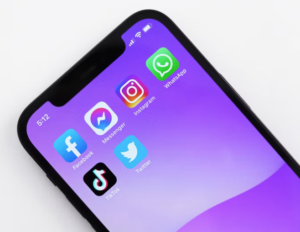Netiquette for SLPs
Netiquette for SLPs
Netiquette is the correct or acceptable way of communicating on the internet. I love the term! It’s a combination of the two words network + etiquette. Netiquette for SLPs is important to keep our clients safe.
In the academic setting, it’s important to have clear expectations of what is appropriate and courteous behavior online. All syllabi and/or codes of conduct should have a statement on netiquette.
General Language
Many Universities have adopted their own language for general netiquette guidelines. A lot of it is now centered around online or hybrid learning (a combination of in-person and online learning). Below is a list of guidelines from The George Washington University related to discussion boards.
- Remain professional, respectful, and courteous at all times.
- Remember that a real human being wrote each post and will read what you write in response. It is easy to misinterpret discussion posts. Let’s give the benefit of the doubt.
- If you have a strong opinion on a topic, it is acceptable to express it as long as it is not phrased as an attack. Please be gracious with differing opinions.
- When upset, wait a day or two prior to posting. Messages posted or emailed in anger are often regretted later.
- Proofread and use the spell-check tool when you type a post. It makes the post easier to read and helps your readers understand what you are saying.
- The professor reserves the right to delete any post that is deemed inappropriate for the discussion forum, blog, or wiki without prior notification to the student. This includes any post containing language that is offensive, rude, profane, racist, or hateful. Posts that are seriously off-topic or serve no purpose other than to vent frustration will also be removed.
For SLPs
Speech-Language Pathologists must abide by HIPAA and protect our client’s health information. Graduate clinicians are held to the same standard but may need clear boundaries of what is and is not allowed.
Social media is here to stay. There are a lot of pros to social media- you can get instant information, follow friends for updates, look at travel vlogs, or plan your outfits for the week. However, there are cons to social media- posts can be forever, posts can be offensive, and some posts can be illegal. For example, if they violate HIPAA guidelines.
There are many social media accounts specific to Speech Pathology with good information. However, sometimes people mean well but post too much information. Like when they want to ask a question about a client and list their age and goals. By clicking on that person’s account, you can find out more about them like where they live and work. With a little detective work, one could easily link the post back to a client.
Netiquette Statement
In my netiquette statement, I include the following details:
- Students are expected to abide by the ASHA Code of Ethics and HIPAA guidelines.
- Do not post any information, pictures, or comments about clients observed in clinics or discussed in class.
- Students are also expected to be respectful of class time and not browse websites, post to social media, or check email during class.

What do you post in your netiquette statement? Where do you post your netiquette statement? Let us know in the comments below.


